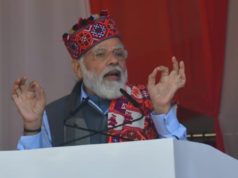Move Aims to Simplify Direct Tax Laws Without Imposing New Burdens
The Union Cabinet, chaired by Prime Minister Narendra Modi, has approved the new Income Tax Bill, paving the way for the replacement of the six-decade-old Income Tax Act, 1961. The Bill, which aims to simplify direct tax laws without adding new tax burdens, will be introduced in Parliament next week and sent to the Standing Committee on Finance for further review.
Finance Minister Nirmala Sitharaman announced in the Budget 2025-26 that the new tax law would be tabled during the ongoing session of Parliament. The first phase of the Budget session concludes on February 13, while the second phase will run from March 10 to April 4.
The Central Board of Direct Taxes (CBDT) had earlier formed an internal committee and 22 specialized sub-committees to review and streamline the Income Tax Act. The primary goal was to make the law concise, clear, and easy to interpret, thereby reducing disputes and litigation while providing greater tax certainty to individuals and businesses.
Public participation played a key role in the review process. The Income Tax Department received 6,500 suggestions from stakeholders in four key areas—simplification of language, litigation reduction, compliance reduction, and removal of obsolete provisions.
The new Bill will eliminate complex legal jargon, provisos, and lengthy explanations, making tax laws more accessible to taxpayers. Experts believe this reform will bring much-needed clarity and ease of compliance while aligning India’s tax framework with modern economic realities.














